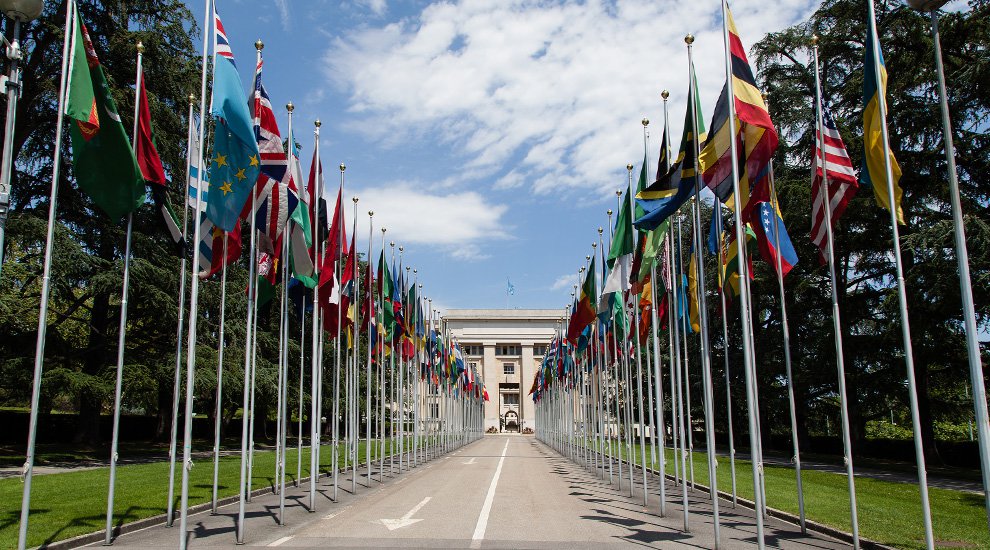UN Working Paper Explores How the Blockchain Can Empower Global Communities
More and more high profile financial and political institutions are taking notice of the blockchain technology of distributed ledgers, starting internal investigations and issuing position papers.
In January, Bitcoin Magazine reported that the International Monetary Fund (IMF) released a paper titled “Virtual Currencies and Beyond: Initial Considerations” at the World Economic Forum in Davos. Similar papers have been issued by other mainstream institutions.
The RAND Corporation, an influential global policy think tank with strong U.S. defense and homeland security ties, released a report titled “National Security Implications of Virtual Currency.” A recent report issued by the U.K. Government Office for Science, titled “Distributed ledger technology: beyond block chain,” explores how distributed ledger technology can revolutionize public policies and advocates the use of blockchains for a variety of public services.
A recent working paper released by the United Nations Research Institute for Social Development (UNRISD), titled “How Can Cryptocurrency and Blockchain Technology Play a Role in Building Social and Solidarity Finance?,” explores the potential of distributed ledgers to help create a global world order fairer and more sustainable than the current one, and wonders how blockchain technology can be harnessed for community empowerment and solidarity-based finance.
The UNRISD is an autonomous research institute within the U.N. system that undertakes multidisciplinary research and policy analysis on the social dimensions of contemporary development issues. The author of the UNRISD paper, Brett Scott, is an independent researcher and consultant on alternative finance and financial reform. Scott is the author of The Heretic’s Guide to Global Finance: Hacking the Future of Money.
According to Scott, it’s important to test the potential of Bitcoin and blockchain technology for building truly empowering social and solidarity-based finance.
“This paper provides a primer on the basics of Bitcoin and discusses the existent narratives about the technology’s potential to facilitate remittances, financial inclusion, cooperative structures and even micro-insurance systems,” says Scott. “It also flags up potential points of concern and conflict, such as the tech-from-above ‘solutionism’ and conservative libertarian political dynamics of some of the technology start-up community that surrounds Bitcoin. As a way of contrast the paper considers ‘blockchain 2.0’ technologies with more overtly communitarian ideals and their potential for creating ‘cooperation at scale.’”
Scott suggests research on how blockchain technology could be implemented with sensitivity to the real struggles people face in implementing technology within diverse cultural and political contexts.
“One blockchain does not fit all,” notes Scott.
In particular, he suggests a research effort, presumably conducted under the leadership of the UNRISD, on the extent to which developing countries are actually adopting blockchain technology, the extent to which cryptocurrencies could interact with “blockchain 2.0” smart-contract technology to create alternative financial schemes, and the Bitcoin system’s potential to promote financial inclusion, including its use as a remittance system and as an alternative bank account.
For example, blockchain-based property title systems (such as land registries) could open up normal bank financing to people who otherwise cannot get access to credit from financial institutions.
The popular technology magazine Motherboard notes that “most Bitcoin startups are just too damn libertarian to take up the altruistic challenge of helping less privileged people,” according to Scott. “But there is some hope that Bitcoin’s underlying blockchain technology… might actually help developing economies.”
Scott describes the “techno-libertarian” message as “a technology-as-saviour and markets-as-saviour gospel alongside an anti-state message,” and outlines the disruptive potential of smart contracts and Decentralized Autonomous Organization (DAOs).
It is, however, possible to build a communitarian anarchist reading of the same technology. Scott suggests de-emphasizing the focus on the trustless nature of blockchains, and instead characterize blockchain technology as trust-enabling.
Scott mentions Bitnation, a blockchain-based “Governance 2.0” initiative with a collaborative platform for DIY governance, as one of the most radical articulations of the techno-libertarian message, and quotes two Bitcoin Magazine articles (1, 2) about Bitnation.
Led by Susanne Tarkowski Tempelhof, Bitnation launched several pathfinders and proofs of concept including the first marriage registered on the blockchain and the first blockchain passport. The organization also developed and tested, as suggested by Scott in the U.N. paper, workable DIY land titles recorded on the blockchain in Ghana, where 70 percent of land lacks proper title, preventing investment and borrowing in real property markets.
“Bitnation has presented a vision — at least in principle — of hosting completely alternative state institutions (such as security and legal institutions) on blockchain systems, describing states as governance service providers that might be outcompeted by technological platforms,” says Scott.
At the same time, persuaded that that modern democratic states can represent the interests of all, Scott prefers a mixed, socially oriented “libertarian socialist” approach to the pure “stateless” libertarian model promoted by Bitnation.
Photo Tom Page / Flickr(CC)
The post UN Working Paper Explores How the Blockchain Can Empower Global Communities appeared first on Bitcoin Magazine.



